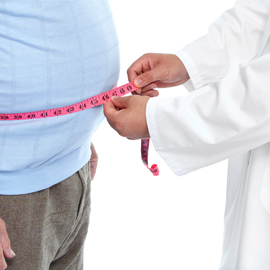All About Fat: What You Need to Know
Posted on: May 24, 2016 in Category: Wellness Guide
All About Fat: What You Need to Know
 The word fat is thrown around a lot, sometimes referring to a nutrient that is found in many of the foods we enjoy, other times to refer to body fat—or to the idea of being overweight altogether. It is one of those words that is highly associated with certain feelings. No one likes thinking of themselves as fat, and food companies have marketed their foods appropriately to make you think that buying something fat free means buying something that is good for you.
The word fat is thrown around a lot, sometimes referring to a nutrient that is found in many of the foods we enjoy, other times to refer to body fat—or to the idea of being overweight altogether. It is one of those words that is highly associated with certain feelings. No one likes thinking of themselves as fat, and food companies have marketed their foods appropriately to make you think that buying something fat free means buying something that is good for you.
But what does “fat” actually mean, and what role does it play in your weight loss efforts? The answer to this is more complicated than you may originally believe.
What is Fat?
Yes, fat is bad—when it is built up on your body in too large of quantities. But there is also some fat that is good for you. A basic level of fat is what helps provide lubricant to your joints, keeps your body warm, and supports with many other daily bodily functions.
Omega-3 and Omega-6 are the two healthiest types of fats. They can be found in foods like fish, nuts and avocadoes. However, you don’t want to go rushing to foods that are high in these fats. The reason is that for most people, fats are already highly present in our regular diets—too present, in fact, especially the Omega-6 fats, which are found in many common cooking oils. Eating too much fat is associated with weight gain and increased risk for heart disease. The trick is to find the right balance that will help you take in the right amount of fat to protect your heart, joints, pancreas and skin.
How much Fat is enough?
For the average person of a healthy body weight, it is typically recommended that only 30{3a67f89bac1171c18e820b20ccfae70caa2d827bbb8a608d0d78300311666665} of your caloric intake come from fats. This number may change during a medical weight loss program, and will most certainly be different after you have weight loss surgery. It is important that you work closely with your weight loss doctor to understand exactly how much fat should be present in your diet.
Fats can be a confusing topic, but learning more about the types of nutrients that you are putting into your body, as well as the way that fat actually builds on your body is good information to have. Being more knowledgeable about the weight loss process puts more power in your hands as you lose weight.